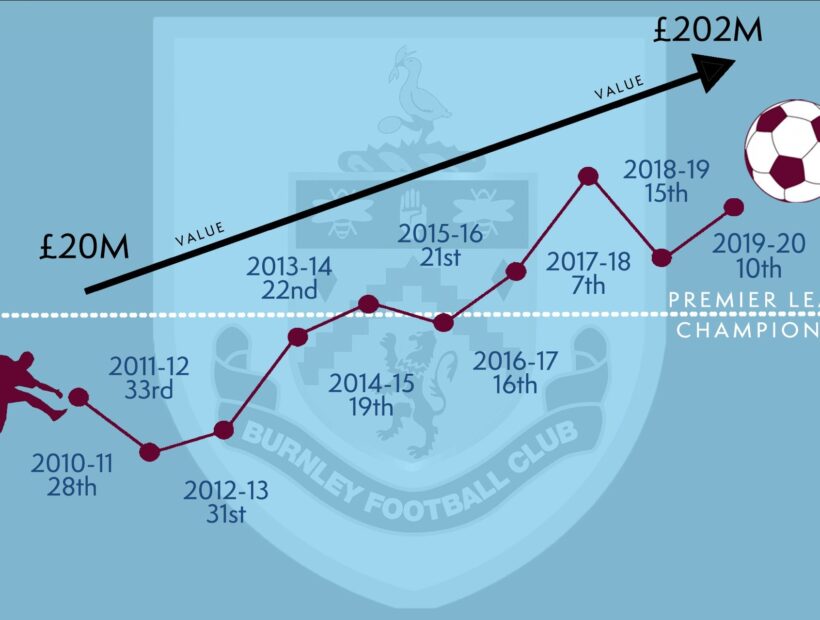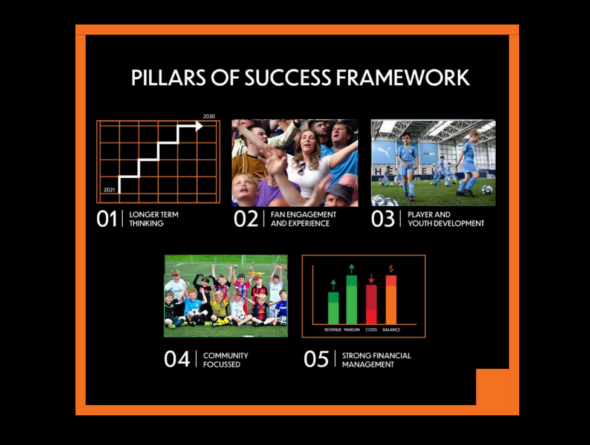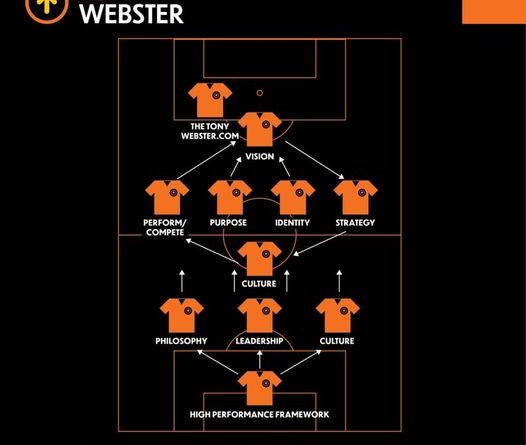£20m to £202m in 10 years – Burnley FC
The story of Burnley’s progress over the last 10 years is clear evidence of a financially sustainable operating model in the business of English football, with a social conscience. The club has been on a journey over the past decades, from League 1 to Championship, to a yoyo phase between the Championship and Premier League. However, the club is now firmly established in the Premier League. This progression has seen the enterprise value increase from £20m to £202m and the new owners are set to build on this even further.
Burnley is a small town in Lancashire, with a population of less than 100,000, and is surrounded by numerous football clubs within a short distance, including the giants of Manchester and Liverpool. So how have they achieved this?
Historically, and like most clubs in the league, they changed managers regularly however with Sean Dyche’s appointment in 2012, this changed. What also changed was the ownership, with Mike Garlick taking over in the same year. The success can be traced back to this time, when a longer-term view was adopted and implemented into the club’s strategy. Finishing 11th and 13th in their first two seasons in the Championship, 2013/14 saw promotion to the Premier League. Immediate relegation followed, but they stuck to their plan and ended the season as Champions with promotion back to the Premier League, where they have remained ever since.
2013/14 also saw the training ground and the stadium, Turf Moor return to the club’s ownership. This was followed by the new Barnfield Training Centre opening in 2017. Within the new training centre is a Category 1 Academy, with some of the best facilities in the country. Clear signs of a club taking a bigger picture view, building an infrastructure and base on which to grow.
Throughout this time, tight financial management and control has been evident, with the club being largely profitable and operating within budgets from its own self-generated income. This includes transfers, with the club spending around £125m over the last five years. Some £65m of players sales income has been generated, leaving a net spend on players of around £60m. Costs and especially player wage budgets have been robustly managed, with no requirement for the owner’s or any other external sources of funds to be introduced.
This is quite remarkable given the local population and small fan base. Burnley have the lowest matchday revenue per fan and one of the lowest overall matchday revenues in the league of around £6m.
The focus on community and social purpose is clear, with the Burnley FC in the Community (BFCitC) charity doing excellent work, using the power of football to transform people’s lives for the better. Working together to inspire, support and deliver positive change for all. The appointment of Dr Sara Ward as CEO in 2020 is further evidence of this commitment to the community.
2021 has seen the dawn of a new era with new owners investing, led by Alan Pace of ALK Capital and a new Board of Directors being formed. This now includes Dave Checketts, former New York Knicks President and CEO of Madison Square Garden Company, along with Professor Antonio Davila, an academic with sports management expertise.
Already there is promise of support in the transfer window, new data-led technology, esports and global media opportunities. The announcement of a partnership with artificial intelligence scouting firm AiScout and increasing the profile of its people in the media are new concepts to the club and it will be interesting to see how this develops. It is of course, very early days and only time will tell if the club continues to grow. Looking at other clubs, such as Swansea and WBA who have faltered under new ownership even though they previously had sustained success and Wolves have continued to progress, albeit with significant external funding.
In summary, there appears to be a five key elements to the Burnley success: long-term thinking and planning; genuine fan engagement; commitment to the community; stringent financial management and operating within self-generated budgets; and consistency and continuity of management both on and off the pitch.
Additionally they are building an infrastructure, which in turn is increasing their performance levels, improving players, which results in more match wins and consequently enhances the asset value, namely the squad, individual players and club overall.
I have mentioned in my previous posts that this is not revolutionary or new thinking. Burnley is a perfect example to other football clubs within the EFL of how these ideas and strategies can be implemented and can lead to sustainable success.



